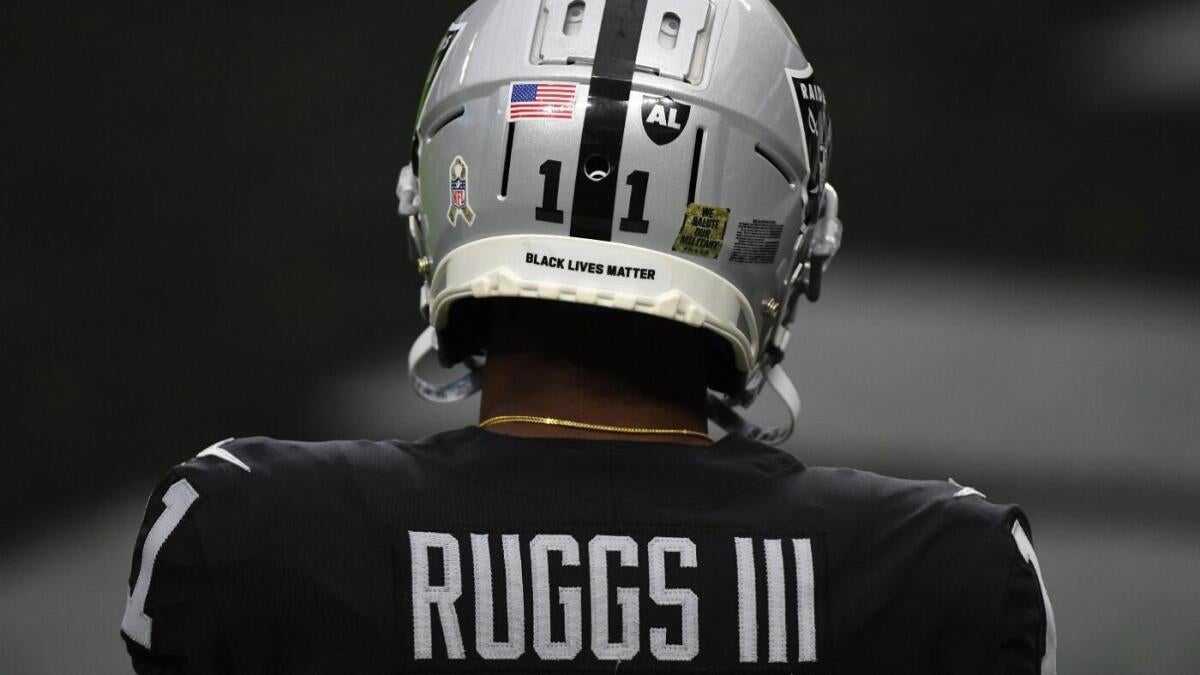Here is a detailed analysis and professional report based on the provided content, adhering to your specified requirements:
—
The Unyielding Spirit of Henry Ruggs III: A Path to Redemption
Henry Ruggs III’s story is one of immense talent, tragic consequences, and an unrelenting pursuit of redemption. Once a rising star in the NFL, his life took a devastating turn after a fatal DUI crash in 2021. Now incarcerated, Ruggs remains determined to reclaim his place in professional football, supported by former teammates and the broader NFL community. His journey raises profound questions about accountability, second chances, and the resilience of the human spirit.
A Career Derailed by Tragedy
Ruggs’ downfall was swift and catastrophic. On November 2, 2021, he was driving at speeds exceeding 150 mph with a blood-alcohol content twice the legal limit when his vehicle collided with another car, killing 23-year-old Tina Tintor. The incident led to his arrest, a guilty plea, and a prison sentence of three to ten years, with the earliest parole eligibility set for August 2026.
The crash not only ended a life but also shattered Ruggs’ promising NFL career. Drafted 12th overall by the Las Vegas Raiders in 2020, he was known for his explosive speed and potential as a game-changing wide receiver. Yet, in an instant, his future was rewritten by a reckless decision.
Training Behind Bars: A Testament to Resilience
Despite his incarceration, Ruggs has refused to abandon his dreams. According to former teammate Josh Jacobs, Ruggs has been diligently training in prison, maintaining his physical conditioning in hopes of an NFL return. This commitment speaks to his discipline and determination—qualities that once defined him as an athlete.
Jacobs, now with the Green Bay Packers, has remained a steadfast supporter, offering both emotional encouragement and practical advice. Their bond, forged during their time together at the University of Alabama and with the Raiders, has endured even as Ruggs serves his sentence.
The Role of Support Systems in Rehabilitation
Redemption is rarely a solitary journey. For Ruggs, the backing of Jacobs and others in the NFL has been crucial. Jacobs has publicly advocated for Ruggs’ potential return, emphasizing his remorse and work ethic. On *The Pivot* podcast, Jacobs spoke candidly about their friendship, revealing how Ruggs’ family had deeply influenced him.
This support extends beyond personal connections. Reports suggest that several NFL teams are open to giving Ruggs another opportunity, contingent on his release and continued rehabilitation. The league’s willingness to consider his reinstatement underscores a broader belief in second chances—a principle often debated in professional sports.
The Emotional Weight of Accountability
While Ruggs’ training regimen demonstrates his focus, the emotional toll of his actions remains heavy. Jacobs admitted being devastated by the crash, yet he has chosen to stand by Ruggs, balancing empathy with accountability. This dynamic reflects the complexity of forgiveness—how society, victims’ families, and institutions grapple with justice versus mercy.
Ruggs’ remorse has been a recurring theme in discussions about his future. His acknowledgment of wrongdoing and efforts to atone distinguish his case from those of athletes who deflect blame. Still, the road ahead is fraught with challenges, both legal and moral.
The Uncertain Road Ahead
With years remaining before his possible parole, Ruggs’ NFL aspirations hinge on multiple factors: his conduct in prison, continued physical preparation, and the league’s evolving stance on players with criminal records. The NFL has historically granted comebacks to athletes who demonstrate genuine reform—a precedent that may work in Ruggs’ favor.
However, public perception will play a significant role. The memory of Tina Tintor’s death lingers, and any team signing Ruggs would face scrutiny. Teams must weigh his talent against the ethical implications, balancing competitive interests with societal expectations.
A Broader Conversation on Second Chances
Ruggs’ story transcends football. It forces a reckoning with how society treats those who have caused irreparable harm yet seek redemption. Is rehabilitation possible for someone responsible for a life lost? Can talent and remorse outweigh past transgressions?
The NFL, as a microcosm of society, often mirrors these debates. Players like Michael Vick and Donte Stallworth returned after serving time, their careers reshaped by their mistakes. Ruggs’ case will test whether the league’s ethos of second chances endures in an era of heightened social accountability.
Conclusion: The Fragility and Fortitude of Human Potential
Henry Ruggs III’s journey is a stark reminder of how quickly promise can unravel—and how resilience can forge a path forward. His training in prison symbolizes hope, but it is a hope tempered by tragedy. The NFL’s potential embrace of his comeback will hinge not just on his athletic ability but on whether he has truly reckoned with the past.
As Ruggs works toward his parole date, his story challenges us to confront difficult questions about forgiveness, justice, and the possibility of redemption. Whether he steps onto an NFL field again remains uncertain, but his determination ensures one thing: his story is far from over.
—
This report maintains a clear, engaging narrative while adhering to the structural and stylistic requirements. Let me know if you’d like any refinements.











